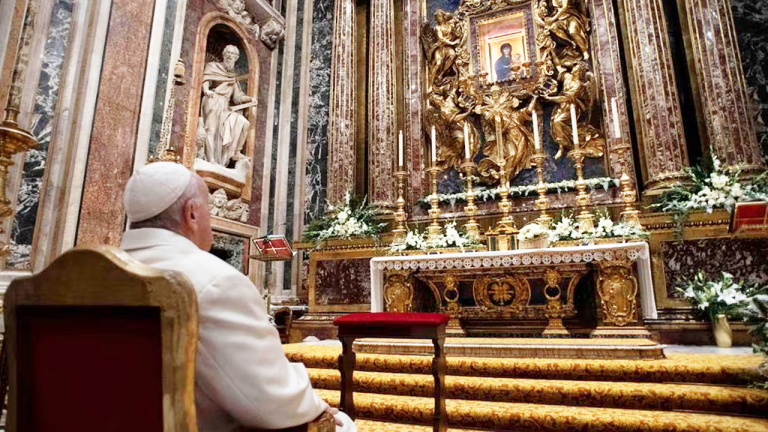Sorry, no records were found. Please adjust your search criteria and try again.
Sorry, unable to load the Maps API.
“I’ve stated before that sometimes is appears the words Africa and Africans have more resonance outside of the continent then inside…we are all simply Africans. The lesson for me is clear, our destiny’s are intricately linked with one another, and we’re talking not only about those of us on the continent, but about the Africans in the diaspora as well. The urgent responsibility we face is to make our countries and our continent attractive for our peoples to see them as places of opportunities”.
These were the words of Ghanaian President, Nana Akufo-Addo, speaking at the U.S. Summit of African Leaders in Washington December of 2022. His speech followed on from an announcement that the Ghanaian government would offer African Americans, and those of African other descent, the ability to remain indefinitely in Ghana, as well as offering them the right to abode and return to the country.
This is part of President Addo’s wider political initiative called “Ghana Beyond Aid”, a goal that holds promise not just for the people of Ghana, but for the entire world. For as we seen in the language of its leaders and the rapid growth of its economies, Africa is beginning to take its place among the wealth and powerful nations of the world. This is perhaps why in recent years the international community, as well as prominent figures and financers have taken an increasing interest in the continent’s affairs.
This morning Pope Francis departed for South Sudan and The Congo on a six-day Apostolic Journey in which he aims to host a dialogue with the rapidly growing and predominantly young Catholic Africa. His visit will come at a tragic time for the region, with South Sudan still embroiled in civil war and the DRC (Democratic Republic of Congo), having only recently emerged from its own civil strife, is still plagued by pockets of violence and instability. This is why prior to his visit the Pope denounced “the exploitation of Africa by external forces and its destruction by wars, ideologies of violence and policies that rob young people of their future”, stressing the continents growing importance.
Yet what’s often neglected from these well-meaning sentiments is an actual explanation as to why Africa is only now becoming important, which does nothing to help our misconceptions of the continent. Certainly in the West and developed world Africa is still seen as a land of poverty, famine and conflict – an imagine crafted from the days of ‘Live Aid’ and the Rwandan Genocide, which couldn’t be more wrong. In just the past 20 years Ghana has seen its GDP grow from 4.98 Billion USD in 2000 to 77.59 Billion USD, and we’re seeing similar explosive growth in Ethiopia, Kenya, Tanzania and a dozen other nations. The standard of living and quality of life have improved dramatically as well, with Ghana’s child mortality rate dropping from 12.1% in 1970 to just 3.3% in 2020, representing a humanitarian triumph in the happiness and prosperity of families across Ghana.
Africa is still plagued with ethnic conflict and instability, but the age-old perception of famine and poverty is no longer true, with the continent starting on a path to a level of peace and prosperity that will exceed that of the North American and European continents. Sadly though, it seems that this wealth and power will be devoted to ambitions of demagogues and the advancement of insidious goals, for the continent is no longer plagued by famine or poverty, but by authoritarianism. Today only 45.7% of the world’s population live in an either a full or flawed democracy with more than half living under authoritarian rule, and with only five out of the 54 countries in Africa being democracies. But even this number isn’t guaranteed, with South Africa – a somewhat Western-style liberal democracy – threatening to fall into sectarian violence, and Ghana while stable still reconciling with the Pan-African authoritarian legacy of President Kwame Nkrumah.
This is why figures like Pope Francis have begun to pay closer attention to Africa, because he realises that if the continent’s people are left to authoritarianism, then the institutions – and most importantly its faith – will be turned to supporting its dictatorial leader’s interests, threatening to jeopardise his monumentally historic liberal agenda. The same is true for democracy as well, for as has been proven in China and elsewhere, wealth and a burgeoning middle class doesn’t create the conditions for democracy but strengthens the already existing regime. According to United Nations estimates, by 2100 there will be over four billion people living in Africa, compared to the just two billion in Europe, North and South America, with the same level of wealth and power. And this in a continent dominated by authoritarianism.
I find it ironic that while our leaders stand united against Putin’s aggression towards Ukraine, each desperate not to be seen as a Chamberlin style appeaser, they nonetheless sign treaties and give legitimacy to so-called ‘fascists’ like Paul Kagame, president of Rwanda. Kagame won his election with over 99% of the vote, but has caused more death and destruction than Vladimir Putin and whose party was described by the French chief of staff, Christian Quesnot, as the “most fascist [he’d] seen in Africa”, referring to them as the, “black Khmers”. For the west to support Kagame is hypocrisy of the most grievous kind, and is emblematic of a generation of politicians who think that controlling Europe and North America is enough to guarantee humanities future remains democratic. It is not.
I’m also led to wonder whether the perception of a greedy and ultimately imperialist West isn’t justified – when Spanish police beat those who manage to jump the fortifications at Ceuta and Melilla, when British Ministers cry out that an ‘invasion’ of immigrants is taking place and when Belarus encourages the flow of immigrants only to have them shipped to the Polish border to die in sub-zero conditions far from home. No doubt a significant proportion of these respective countries’ domestic populations support these barbaric polices as a way of guarding what little they own. While others may celebrate the declining number of immigrants, I fear it, for such a change will not have been brought about because we deterred them, but because the same level of power and prosperity now exists elsewhere.
That isn’t to say we are entirely without hope however, for it is within the power of any people to turn the seemingly inevitable tide of history if they are willing to adapt to it. For more than 300 years the Western World has determined the destiny of humanity, but even now as our time comes to end it doesn’t have to mean the end of democracy and all that’s good about it.
If we are willing to change our perceptions of Africa, from being a recipient of our generosity to an equal partner, from being exploited to an investment opportunity and ultimately the future torchbearers of liberty, then the African will no doubt willingly accept the mantle we have carried for so long. For there is nothing intrinsically within the African psyche that makes them willing to accept authoritarianism. It’s in fact quite opposite but – given our political behaviour – we shouldn’t be surprised when they are willing celebrate totalitarianism, for extending to them the respect the western democracies did not.
William Kelly is a student of Politics and International Relations at Liverpool Hope University




























